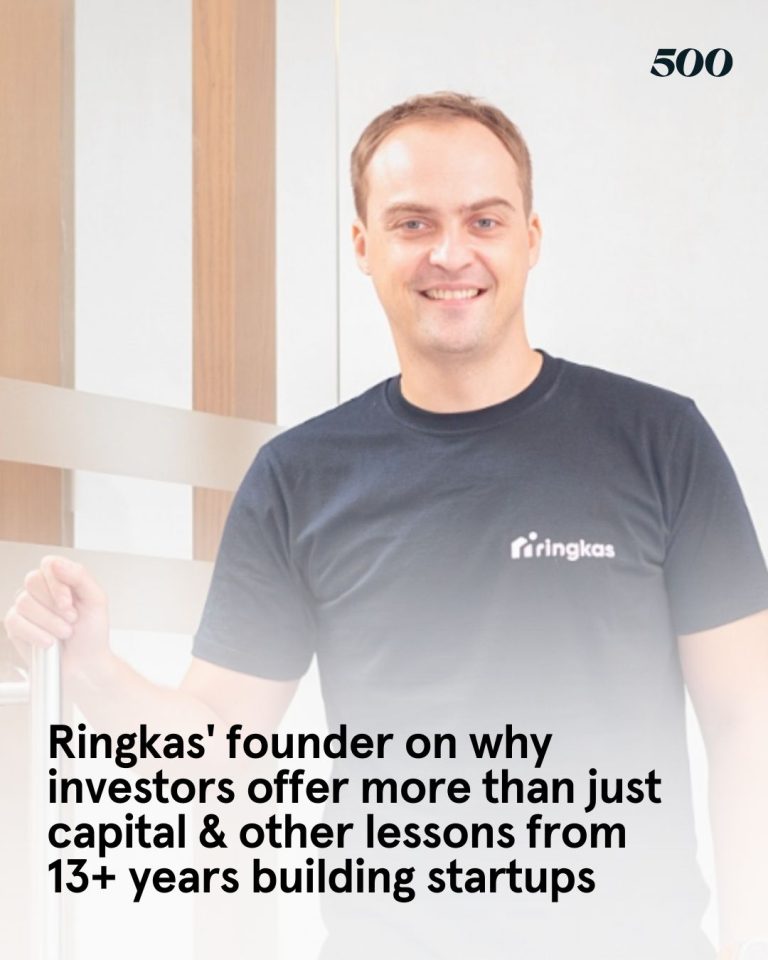
A disruptor disrupted
- The COVID-19 pandemic was hard on everyone, and 500-backed real estate rental platform Speedhome was not spared. The company had to lay off their staff, and CEO Whei Meng Wong moonlighted as a talk show host on LinkedIn to make ends meet.
- “We had a pay cut across the board, especially the CEO. As the CEO, I have to lead by example,” he explained. At the end of 2022, he quit doing the talk show as growing Speedhome had always been the focus.
- Were the company’s investors worried? “I explained it to them transparently: I was doing this literally right after working hours, and I was compartmentalizing my time for different things. We were able to reduce our burn and stay the course.”
- “We aggressively cut costs, trimmed 20% of our workforce, and optimized certain aspects of the business,” he continued. “For example, customer service – we used to run seven days a week. If we kept at it, we’ll be worse off. Eventually, we decided to run five days a week but automated some of the processes and that has helped so far.”
- When Speedhome was first introduced, it was about helping landlords and tenants rent in a transparent and hassle-free manner. But there were deeper issues.
- “We saw many things were broken in the sense that there wasn’t strong regulation nor was there a strong ecosystem. And because there’s a gap in proper regulations, people default to what they know – skin color, language, religion – simply because there isn’t a better solution,” he shared.
- So, how has Speedhome stepped up to the challenge? “We’ve collected 50 million data points, both positive and negative, and from there, we have models and patterns to screen a tenant. When we started in 2017, the tenancy default rate was high. But we’ve managed to reduce that with our screening process.”
- Then, COVID-19 came along and threw a spanner in the works. “A good tenant could quickly become bad simply because they’ve lost their job,” Whei Meng said. “As a company, we suffered too. Across the board, the hit was bad, but we were able to collect more data. We back-tested them and deployed a newer model. We are projecting to at least reduce tenancy default rates by 20% to 30%.”
- Looking to the future, the team is focused on expanding ancillary services like Speedfix, where they connect contractors directly with tenants or landlords for maintenance work. They will also double down on their largest markets, Kuala Lumpur and Selangor, as well as Johor and Penang.
- “Our goal is to build a model where we can tell the world or at least in the Malaysian context that there’s a more objective way of screening tenants,” he added.
- Whei Meng also revealed that he plans to be profitable by the end of 2023 or Q1 of 2024.
- Read the full interview on Tech in Asia.




